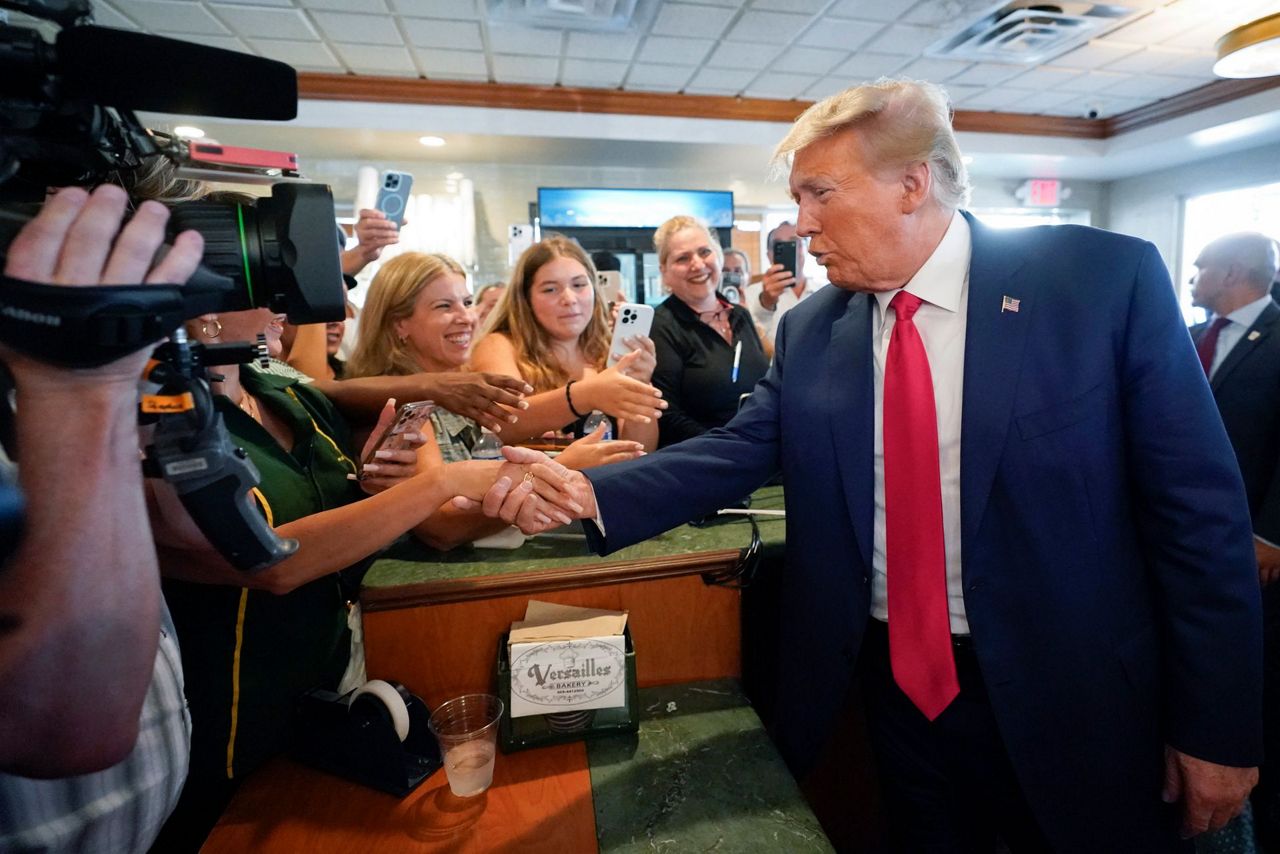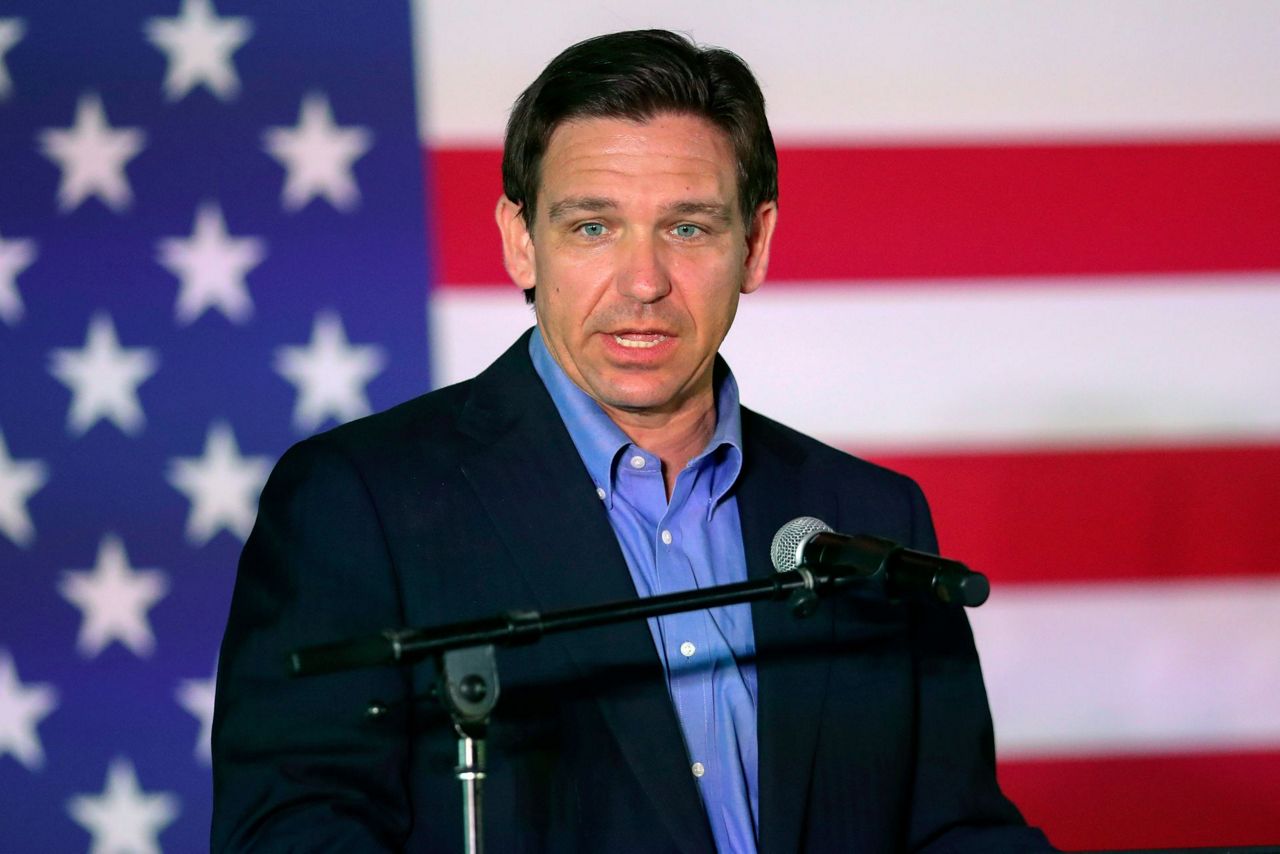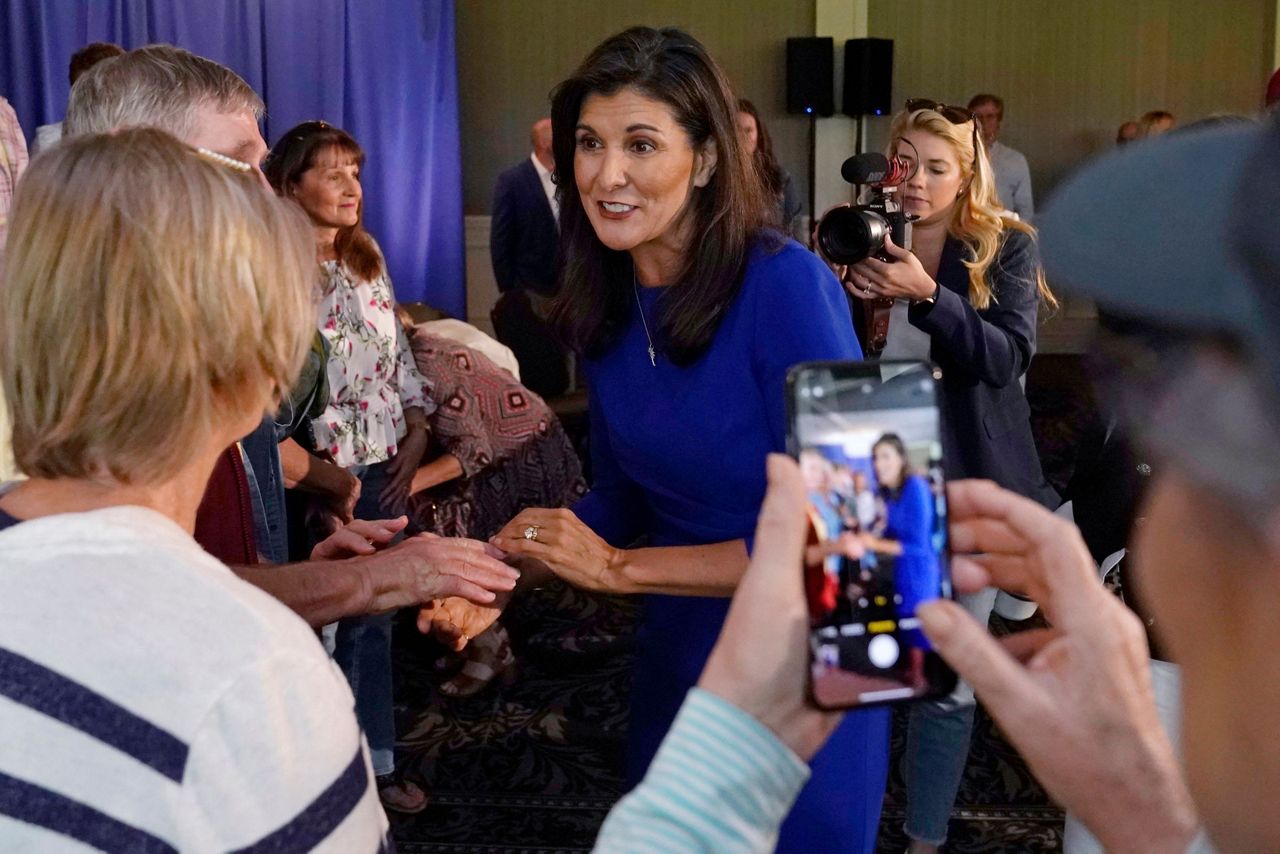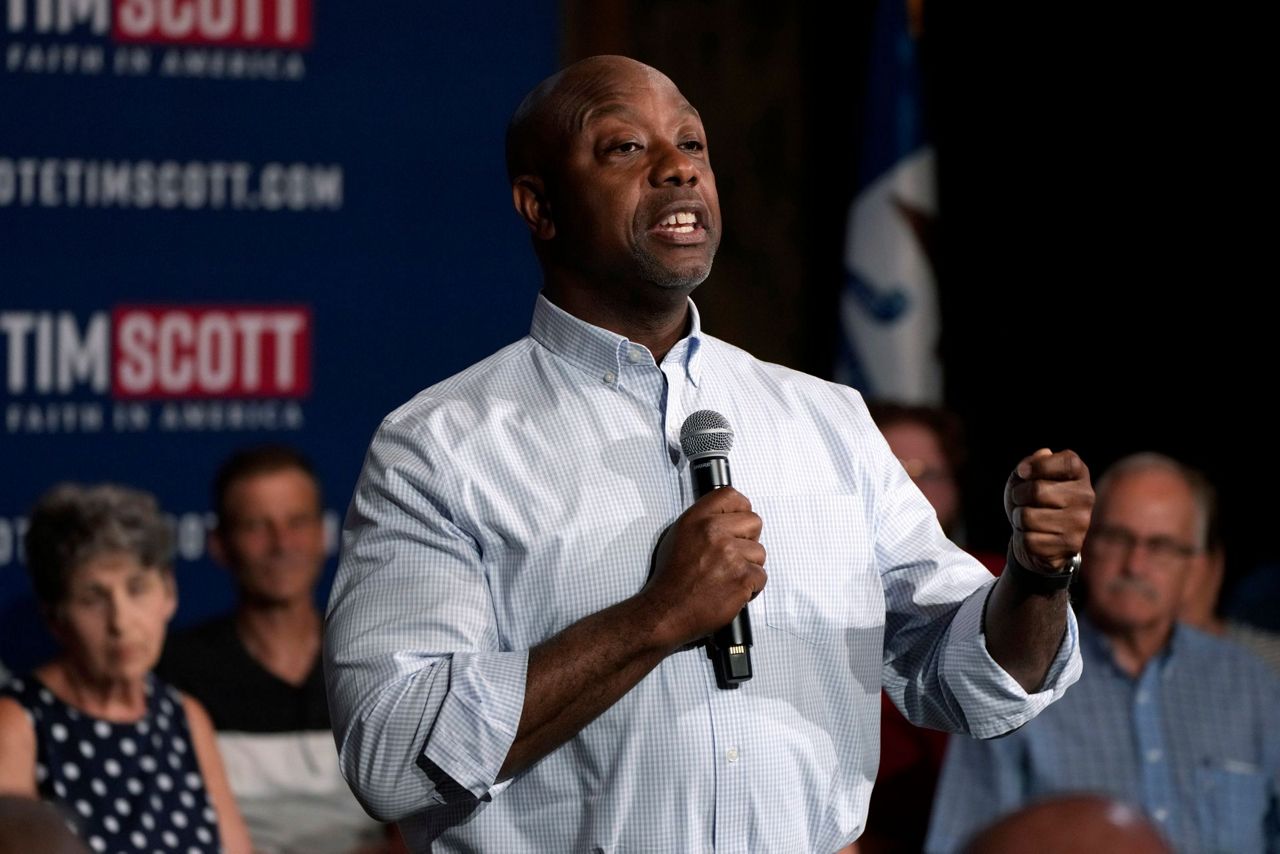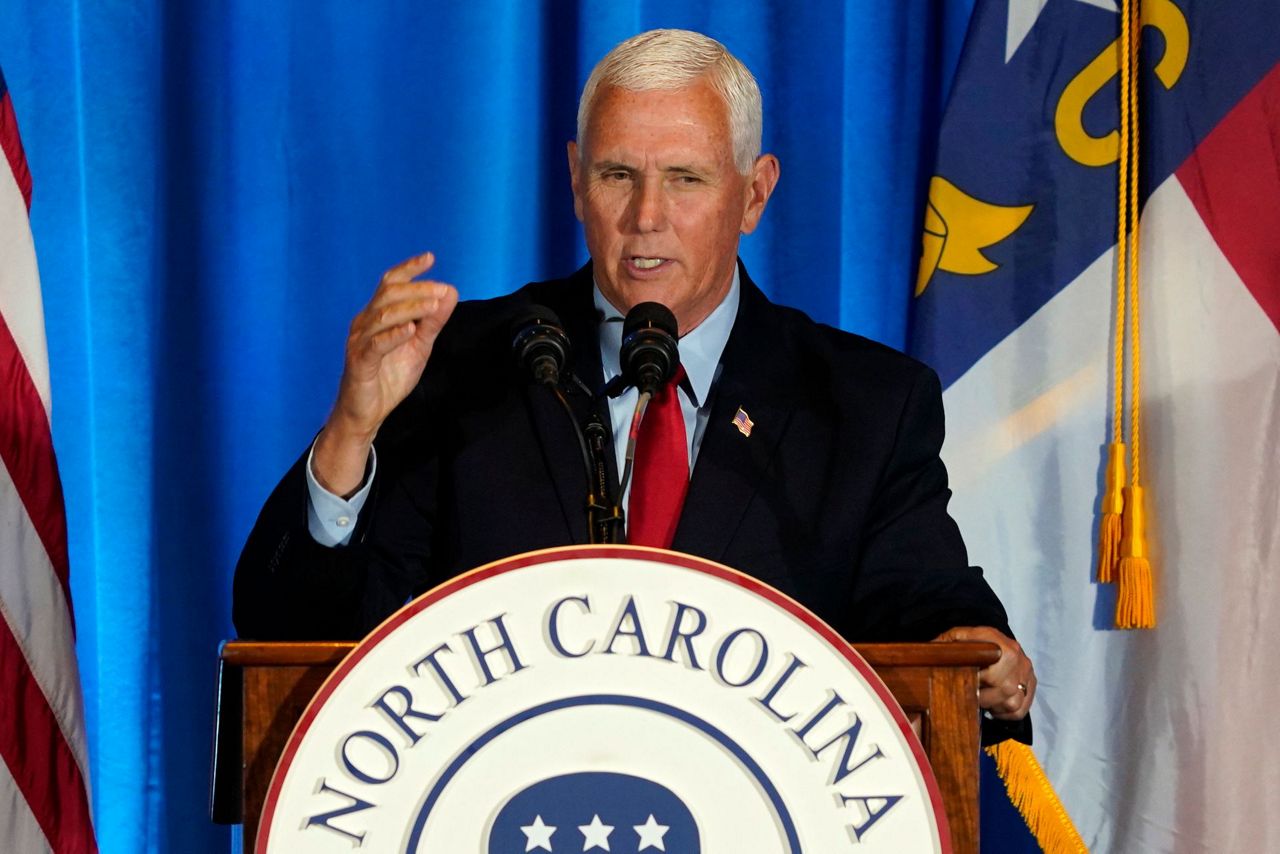Donald Trump's grip on the Republican faithful was evident from the moment he left the federal courthouse in Miami last week.
Fresh off becoming the first former president to face criminal charges levied by the government he once oversaw, Trump's motorcade moved through a crowd of hundreds of mostly adoring fans. He met more supporters at a Cuban restaurant in Little Havana, a Miami neighborhood that, like much of south Florida, has swung toward Republicans in recent years.
A federal indictment on charges of mishandling the nation's most sensitive national security secrets would doom any other White House hopeful. But Trump's reception in Miami — and the more than $7 million he raised after the indictment — was a reminder of the central tension coursing through the Republican Party as the 2024 presidential primary gets underway.
For now, no one comes close to Trump in his command of the voters who will decide the GOP's nominee next year. But Trump's path beyond the primary is far more perilous as he faces significant and growing questions about his ability to appeal to a broader, more moderate set of voters in a possible general election matchup against President Joe Biden. If Trump fails, he risks not just losing the White House contest but also dragging down other Republican candidates on the ballot as the party aims to retake the U.S. Senate and keep the House.
Former Maryland Gov. Larry Hogan is among those warning Republicans that what is popular in a primary may not carry the general election. The frequent Trump critic backed a moderate Republican to succeed him in last year's governor's race. But Trump's preferred candidate carried the primary and was soundly defeated in the general election, a result that played out in key races across the country.
“We had three losing cycles in a row,” Hogan said. “It’s pretty hard to lose the White House, but we did it. It’s pretty hard to lose the House, the Senate and the White House, but we did that also. And in the last election when we should have won the Senate back, picked up governor seats and picked up 50 seats in the House ... Republicans did not make gains really.”
Trump is not the only GOP contender facing such concerns. Florida Gov. Ron DeSantis' national electability has been called into question after he signed into law a state ban on abortions performed after six weeks, delighting conservatives but leaving him as an outlier among broader voters. While many Americans back some restrictions on abortion, especially after the first trimester, many do not agree with the most extreme measures pushed in Republican-led states such as Florida, according to polling that also showed most Americans support a federal law allowing access to abortion nationwide.
DeSantis also alienated some Republicans when he appeared to dismiss Russia's brutal invasion of Ukraine as a “territorial dispute,” comments he later had to walk back.
No one in the race, however, carries the same level of baggage as Trump, particularly after the latest indictment, which follows charges in New York City that he paid hush money to porn actor Stormy Daniels to cover up an affair. He's unlikely to attract new support after the allegations in Florida, which center on allegations that he took and refused to return boxes of classified documents, including some that could put military members and other sources at risk if disclosed.
The hand-wringing over the GOP's future began well before Trump's latest indictment.
In announcing her presidential campaign in February, former South Carolina Gov. Nikki Haley, who was Trump's ambassador to the United Nations, was blunt in addressing the party's general election challenge.
"We’ve lost the popular vote in seven of the last eight presidential elections," she said. “Our cause is right, but we have failed to win the confidence of a majority of Americans.”
Since Trump's federal indictment in Miami, some of his rivals have begun to test how far they can go in criticizing him, positioning themselves in a way that may be helpful in a general election but also tempering their remarks by blasting the Department of Justice for bringing charges.
While Trump's rivals may not be ready to fully take him on, the party establishment is increasingly active in trying to block his acolytes from being nominated in down ballot races or encouraging hopefuls to change the subject from its losing messages of the past.
The Republican National Committee, for example, conducted a review of the GOP's recent performance. A draft report, which did not mention Trump by name, concluded that the party needs to move beyond “relitigating previous elections,” an apparent allusion to the incessant but debunked claims he won the 2020 presidential contest.
The National Republican Senatorial Committee, the campaign arm of the Senate GOP, also has said it's shifting tactics after opting to sit out last year’s primary elections and let voters decide the nominees. After failing to retake Senate control the organization now says it will play in primaries if needed, providing money and other resources to candidates it believes have the best chance to win a general election.
The organization already got news it hoped for when Doug Mastriano, a far-right Pennsylvania lawmaker who was endorsed by Trump last year and lost badly to the Democratic governor candidate, opted not to run for the Senate in 2024. Republicans are hopeful that former hedge fund CEO David McCormick, who lost last year’s primary to another Trump-backed candidate, will run again and take on Democratic Sen. Bob Casey.
Trump, who has falsely called the charges against him a political prosecution, insists that he had redefined the GOP, saying earlier this year that “the old Republican Party is gone, and it's never coming back.” The former president and his supporters point to his 2016 victory as evidence of his ability to win, noting he won Ohio and Florida when the GOP nominees in 2012 and 2008 could not and was the first Republican presidential candidate to win Michigan, Wisconsin and Pennsylvania in decades.
“We forever revolutionized the electoral map for Republicans,” Trump said. “We paved a path to victory.”
That argument ignores the facts that Trump lost all three states in 2020 and that all three elected Democratic governors in 2018 and again last fall. In all three states, Trump’s endorsed candidates lost.
Republicans' losses in competitive races like those are a big part of former New Jersey Gov. Chris Christie's pitch to voters about why it's time for Trump to go. Christie, who also is running for the GOP nomination for president, noted in a recent appearance on Fox News Channel that even before the latest charges, the party under Trump struggled in those contests.
“We’re tired of losing," Christie said. “And look, if the person at the top gets all the credit when things go well, they also must be accountable for what happens when things go badly.”
Copyright 2023 The Associated Press. All rights reserved. This material may not be published, broadcast, rewritten or redistributed without permission.



